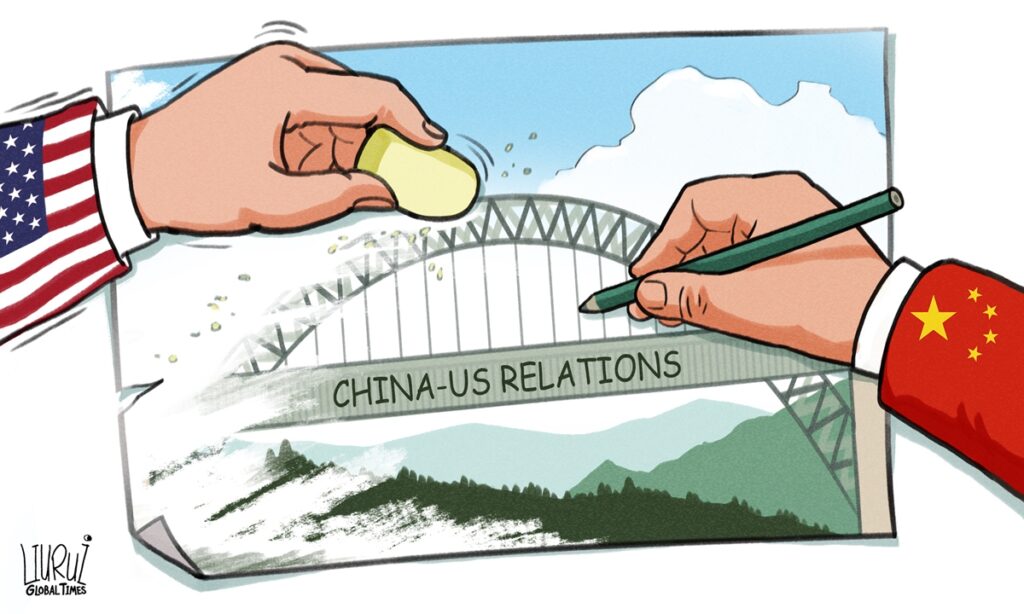Whether US Secretary of State Antony Blinken will make his long-delayed trip to China on schedule has become a spotlight on the global stage. Yet, compared with whether Blinken will make the visit, it may be more noteworthy to see whether Blinken’s reported China trip could be a meaningful one in terms of helping resolve some of the practical issues between China and the US, echoing hopes of the business community.
Neither China’s Ministry of Foreign Affairs nor the US State Department has officially confirmed the news yet, pointing to uncertainty and possibility for any change given the tensions between the two countries.
There is no denying that Blinken’s reported visit to China, a gesture of easing tensions, could be a major event in China-US relations. Yet, Washington’s recent moves ahead of the visit raise the question as to what the visit could really achieve in improving bilateral ties in addition to making a political gesture of cooperation.
For instance, the Biden administration on Monday added 43 entities to its export control blacklist, including 31 entities from China.
The most important thing in international exchanges, especially between major powers, is not what has been said, but what has been done. Indeed, China and the US have carried out many high-level dialogues in such fields as economic and climate cooperation, but it hasn’t prevented the US from imposing sanctions or export controls on Chinese companies from time to time.
As a responsible power, China has always taken a mature and rational approach toward the US.
The main responsibility for the problems in China-US relations lies with the US, which has a deep misunderstanding of China and has accustomed to viewing and defining bilateral relations from the Cold War mentality and strategic competition, directly driving the ties into a deadlock. If no substantial progress could be achieved in addressing the real problems in China-US relations, then what’s the point of promoting high-level talks and visits? The longer the problems stay, affecting bilateral relations, the more easily the two countries may face conflicts, sabotaging cooperation across many aspects.
Specifically, the US economic and high-tech crackdown on China has seriously undermined normal business cooperation between the two countries. Whether US imposition of extra tariffs on Chinese exports, restricting high-tech exports to China, barring Chinese investment in the US or prohibiting US investment in Chinese businesses has had negative impacts on both the Chinese and US businesses. US tariffs, for example, not only hurt Chinese exports, but also make imports more expensive for US companies and consumers.
Moreover, the US ban on high-tech exports has deprived some US companies of opportunities to sell to the Chinese market, leading to sharp drop in earnings, as exemplified by the US chip sector.
Also, as a result of China’s countermeasures and concerns over China-US tensions, some US companies have seen their China operations at a disadvantage amid fierce market competition.
Of course, it is important to note that even in the face of growing geopolitical risks, US business confidence in the Chinese market remains strong as high-profile multinationals such as Tesla and Goldman Sachs continue to announce new expansion plans in China in recent months. These developments reflect the expectations of the US business community for their government to stop playing geopolitical games and bring bilateral ties to the right track. If anything, how to address problems to achieve such expectation is the real issue that requires communication between the two sides, and whether they can be resolved is one of the most important test of the sincerity of the US in seeking cooperation.
Therefore, the real opportunity for China-US relations to improve doesn’t lie in whether Blinken will visit China, but whether any of the obstacles hindering cooperation could be addressed to boost market confidence.
(Global Times)




